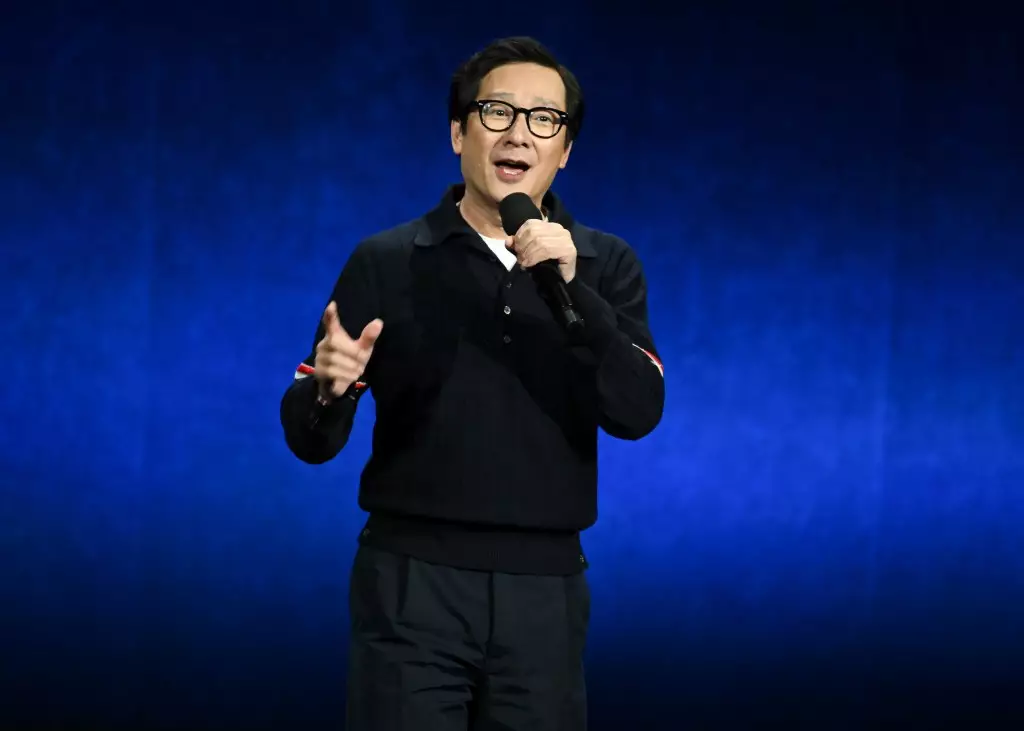Disney’s imminent release of *Zootopia 2* is drawing considerable attention, especially among fans still buzzing from the phenomenon that was the first film in 2016. The iconic pairing of Judy Hopps and Nick Wilde, now strengthened by their partnership, promises an enthralling dose of anthropomorphic adventure. However, behind the charming exterior lies a narrative that seems poised to address the complexities of relationships, especially in a world filled with anthropomorphic animals grappling with their own biases and identities. This upcoming sequel delves deeper than mere entertainment; it challenges us to reconsider our perceptions and prejudices within a modern context.
New Characters, Fresh Dynamics
While Judy (voiced by Ginnifer Goodwin) and Nick (Jason Bateman) remain central to the story, the introduction of a new character, Gary the snake, voiced by Ke Huy Quan, is nothing short of provocative. Claiming titles like “Zootopia’s first snake,” Gary inherently represents duality: “terrifying and villainous,” yet presumably layered within his narrative. This character promises to catalyze Judy and Nick’s latest adventures, but one can’t help but wonder—does he represent an exploration of villainy or serve as a mirror reflecting the darker sides of our societal structures?
Furthermore, this sequel enriches the dynamic between Judy and Nick by introducing therapy sessions with Dr. Fuzzby, a whimsical but necessary intervention in their partnership. This decision to depict these characters undergoing partnership counseling may resonate deeply with audiences, both young and old. The notion that even heroes need guidance encapsulates a grounded reality that challenges the glamorization of independence within popular culture.
The Therapeutic Angle and Its Implications
Another riveting aspect of the film is its focus on therapy as a tool for resolving conflict. In the trailers shared at CinemaCon, the group therapy setting features a quirky assortment of animal pairs, compelling viewers to engage with the absurdity of the situation while uncovering the essence of communication. Judy’s denial and inflexibility could very well symbolize a larger issue—she embodies an all-too-familiar resistance to introspection that individuals often demonstrate in relationships. This is not merely a plot device; it serves as a political commentary on how society often sidesteps deeper issues to maintain a facade of harmony.
In an era where open conversations around mental health are burgeoning yet still marred by stigma, Judy and Nick’s journey through partnership therapy feels undeniably relevant. This narrative choice urges viewers to acknowledge that vulnerability is fundamentally part of any relationship, a message that could inspire audiences to confront their own relational dysfunctions.
Humor and Heart: A Promising Mix
Disney has long excelled in marrying humor with deeper social commentary, and it seems that *Zootopia 2* is no exception. The witty banter and subtle exchanges between Judy and Nick will likely continue to strike chords, but with a newfound complexity. This depiction of partnership, fraught yet entertaining, implies that love, friendship, and collaboration take work.
Through the lens of interspecies camaraderie, the film will perhaps challenge audiences to confront their own biases and assumptions about others, irrespective of context—human or otherwise. As we welcome this thrilling sequel, we are not just entertained; we are encouraged to engage with imperfect realities—an optimistic vision in a frequently cynical world.
*Zootopia 2* is setting itself up to be more than just a follow-up; it’s a multifaceted exploration of personal growth, societal structures, and the courage it takes to open oneself up to change.

